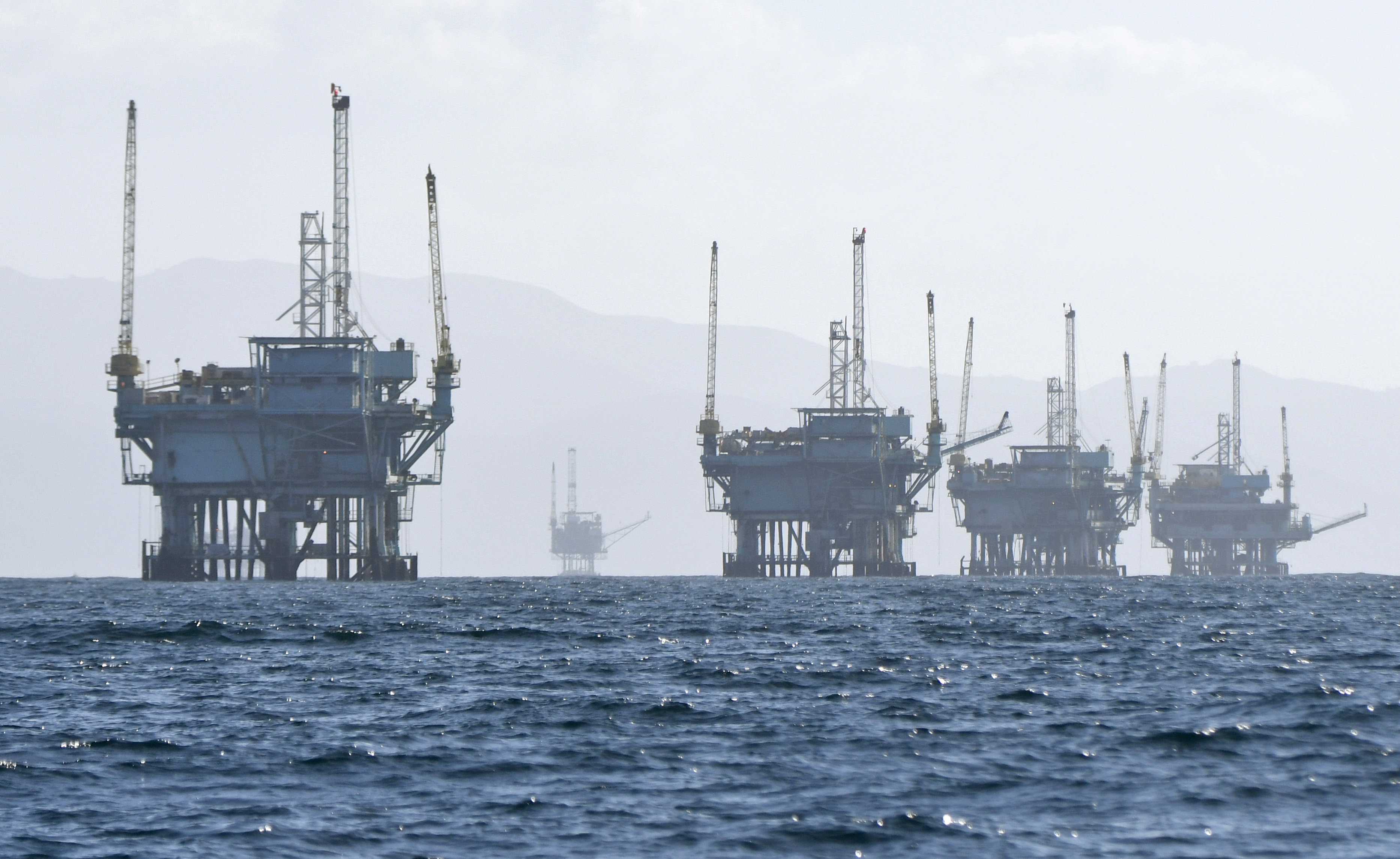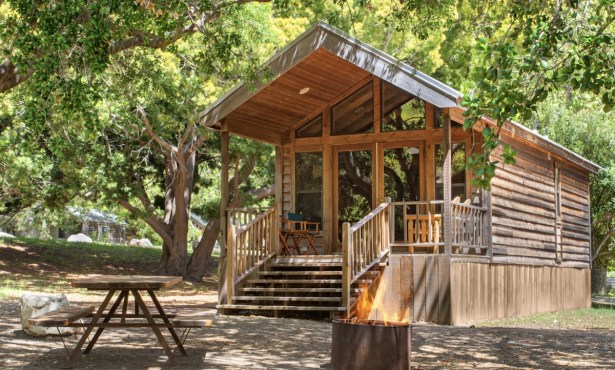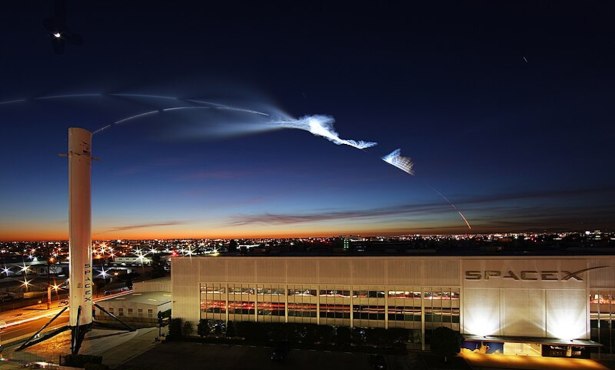Inspection Reports Detail Corrosion, Leaks on Exxon Platforms
But the Federal Safety Agency in Charge Doesn’t Seem Concerned

Federal inspection and accident reports acquired by a Bay Area environmental group reveal that ExxonMobil’s three Santa Barbara Channel platforms were cited for corrosion and leakage problems around the time they were shut down by the 2015 Refugio Oil Spill. The findings were announced May 6 by the Center for Biological Diversity amid Exxon’s highly contentious bid to restart the platforms and truck oil to inland refineries.
Officials who visited Platform Hondo in the spring and summer of 2015 found “numerous corrosion issues,” a “number of components out of compliance,” and “leakage rates higher than the maximum allowable,” the reports show. Platform Heritage was found to have both electrical and corrosion problems “throughout.” One accident report describes an incident on Platform Harmony in which a crate full of pipeline inspection devices — called “pigs” — broke open and tumbled into the ocean. In two separate cases, workers slipped on spilled hydraulic fluid, injuring their backs.
Though Exxon’s equipment was not responsible for the Refugio spill, environmentalists argue it’s still part of the same dangerous and outdated infrastructure. “ExxonMobil’s decrepit drilling platforms need to be decommissioned, not brought back to life like Frankenstein’s monster,” said Kristen Monsell, the Center’s ocean legal director, in a press statement. “At a moment when we should be weaning ourselves from fossil fuels, these offshore drilling platforms should be among the first to go.” In a strange coincidence, Heritage workers mustered in their recreation room during an emergency gas release on the platform at 10:30 a.m. on May 19, 2015, the exact same time oil was spilling out of the broken Refugio pipeline — though the two incidents were not related.
Exxon brushed off the critical reports. “We’ve been safely operating in Santa Barbara County in compliance with federal, state, and local regulations for nearly four decades,” said spokesperson Julie King. “We have a long history of safe operations, with 14 federal safety awards.” The company’s focus right now, she said, is securing the trucking application so Americans can buy American oil, “rather than the global impact of importing it from other countries.”
The federal agency tasked with overseeing offshore oil operations — the Bureau of Safety and Environmental Enforcement (BSEE, pronounced “Bessy”) — also seemed to downplay the reports, which the center obtained through a Freedom of Information Act request. Of the 84 incidents listed, BSEE spokesperson Guy Hayes noted in an email, only 22 involved Exxon platforms. And of those 22, Hayes said, only one was for an actual pollution event, “and that was for 0.5 ounce of hydraulic fluid that leaked out of a lifeboat … Any Incidents of Non-Compliance that BSEE has issued to ExxonMobil in the Pacific Outer Continental Shelf for Platforms Hondo, Harmony, and Heritage have been promptly addressed,” he said.
While Exxon often faces criticism over its transparency and public comments that don’t jibe with corporate practices, BSEE is struggling with its own checkered reputation. Director Scott Angelle, a former Louisiana lieutenant governor appointed by former Secretary of the Interior Ryan Zinke, is frequently called out for cozying up to industry executives. He was recently mocked by HBO’s satirical commentator John Oliver for giving out his personal cell phone number to executives interested in “business opportunities.” Angelle encouraged them to call him (as opposed to texting) to avoid public disclosure laws. BSEE rule changes under Angelle are expected to save the oil and gas industry over $1.3 billion in regulatory compliance costs over the next decade, the New York Times found.
Earlier this month, shortly before the fourth anniversary of the Refugio Oil Spill and just after the ninth anniversary of the Deepwater Horizon disaster, the Trump administration announced it will be rolling back Obama-era safety regulations for offshore drilling. The BSEE is expected to make 59 separate revisions to a 2016 law meant to prevent another Deepwater blowout. The agency says the changes will both address safety considerations and lessen the burden on operators. One revision reduces the time of a blowout safety test from 30 minutes to 5 minutes. Another limits the number of necessary connection points on blowout preventers.
The public comment period for Exxon’s trucking application is open until May 28. The issue will likely go before the Planning Commission in the fall.



